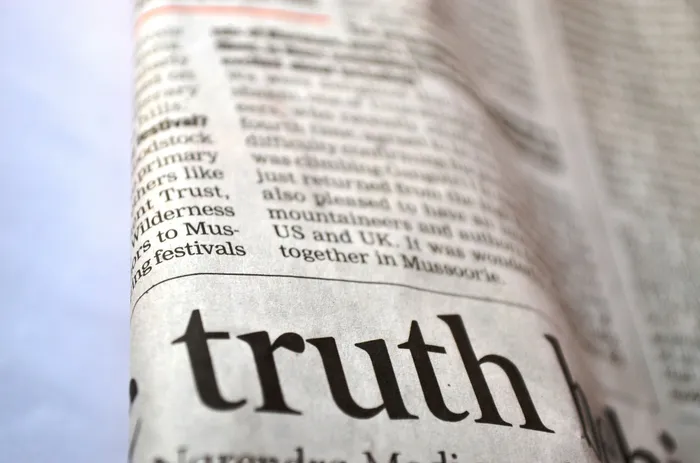No doubt AYO and related parties are victims of latter-day McCarthyism

Media is facing a trust crisis. Fake news, agenda-driven news… Media, once the custodians of the truth and fact check, are becoming indistinguishable from subjective user-generated posts on social media.
JOHANNESBURG – This extremely trying Covid-19 period has taken its toll on a number of South African companies, putting them into full-on survival mode during the pandemic.
However, the efforts by entrepreneurs and businesspeople to get through this economic crisis intact – and in the process, keep millions of South Africans employed – are being hampered by billowing disinformation that is clouding mainstream press and social media, which is not endearing to would-be advertisers or audiences.
Media is facing a trust crisis. Fake news, agenda-driven news… Media, once the custodians of the truth and fact check, are becoming indistinguishable from subjective user-generated posts on social media.
It starts with a single unsubstantiated accusation carried in one publication that morphs into a full-blown widespread feature-length series, as articulated by AYO Technology Solutions’ independent chairperson Dr Wallace Mgoqi, in his article: “I challenge anyone to prove that AYO is corrupt.”
As Mgoqi puts it, AYO – a subsidiary of African Equity Empowerment Investments (AEEI), whose majority shareholder is Sekunjalo Investment Holdings (SIH) – has been subjected to a barrage of negativity that has morphed into claims of corruption and wrongdoing across much of the media landscape, resulting in trial by public opinion.
This brings just one term to mind: McCarthyism – a byname for wholesale defamation of character or reputation by indiscriminate allegations on the basis of unsubstantiated claims.
From the acquisition of Independent News & Media South Africa (INMSA) to the listing of AYO on the JSE, and beyond, one cannot help but come to the realisation that the SIH group, AYO and related parties are indeed victims of latter-day McCarthyism.
SIH for example, is a solid black-owned African company, with a global presence. Its portfolio of investee companies includes media, asset management, biotechnology, civil security and defence, fishing and aquaculture, health and pharmaceuticals, communications and fintech among others.
The SIH executive chairperson is a vocal champion and campaigner for transformation, particularly in these sectors, a position which does not sit well with certain industry heavyweights, and which appears to have provoked a sustained and relentless attack on Sekunjalo and its related companies.
There is no attack without an end goal of course, and with Sekunjalo, its chairperson and the executives of companies associated with it not backing down, and with no legal basis on which to stop any of the companies’ operations, unscrupulous parties are now resorting to going the McCarthyism route.
Various media have been used to perpetuate inaccurate propaganda against SIH, AYO, INMSA et al, even going so far as to paint some of the executives themselves as corrupt. This, in an attempt to get the buy-in of the public to reject the groups and their related companies as being the law-abiding, ethical, profitable organisations they have been determined, by several audits and investigations, to be.
JSE-listed AYO has borne much of the barrage of media attacks. For example, its executives were dragged through the mud at the much-publicised Commission of Inquiry into impropriety at the Public Investment Corporation (PIC).
The commission was essentially used to legitimise the media propaganda in the eyes of the public. However, unscrupulous industry players’ endgame was thwarted when the commission’s report made no adverse findings against AYO and related companies.
Even the JSE, which, prompted by revelations at the PIC inquiry to do a forensic audit on AYO financials, found no fraudulent practices. It did, however, find fault with compliance to the International Financial Reporting Standards (IFRS) and slapped the tech firm with a fine and a public censure.
The tech firm also undertook to assist all law enforcement agencies tasked with further investigations as recommended by the PIC Commission. AYO, in the meantime, is soldiering on by all accounts, growing its asset base to about R6 billion and counting, even under these challenging conditions.
The endgame appears to be to tarnish the entire grouping’s reputation to the point that financial institutions and other businesses lose confidence in their companies, leading to demise, which will also result in job losses for thousands of South Africans.
This as industries across the country are struggling, including the media, which is haemorrhaging jobs in an unprecedented manner. Numerous print media outlets are reliant on advertising and have suffered major losses as circulation too has tanked during the lockdown.
A Unesco report states that despite record audience growth, the health of the news media industry is at risk. The SA National Editors’ Forum said the crisis had shown the need for thinking about emergency funding for the news media.
Pre-Covid-19, SIH issued a statement informing media corporations, their journalists and the business community that it would not be deterred from investing monies into media outlets such as INMSA.
All the while, disparagers scoff at INMSA’s measures to save jobs, simply because it drives a different narrative and speaks truth to power. This poses a threat to press freedom at a time when the economic stress of the crisis is pushing many media organisations to the brink of extinction.
The news media is inextricably linked to advertising revenue – even if the media is donor-funded – and how well it will emerge from the crisis, depends on the speed of the economic recovery of the companies and brands that have promotion budgets.
Sekunjalo, AEEI, AYO et al provide thousands of jobs and have stated that they will not be cowed by critics, political interference applying McCarthyism tactics.
Sekunjalo has also committed to continue to advocate for media freedom and diversity in the media, and that means welcoming free and fair competition in the media, which helps to keep it on its toes, producing accurate, compelling, informed and useful reportage.
BUSINESS REPORT